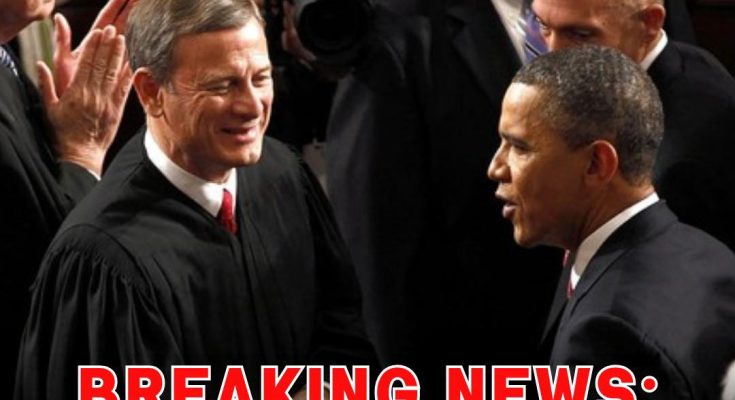A legal challenge with potentially explosive implications for millions of American families has reached the nation’s highest court, setting the stage for what could become one of the most consequential civil rights decisions in decades. The case represents a direct assault on established constitutional protections that have fundamentally transformed American society, threatening to upend nearly a decade of legal precedent and social progress.
The Unlikely Catalyst for Constitutional Crisis
At the center of this brewing legal storm stands Kim Davis, a former Kentucky county clerk whose name became synonymous with religious resistance to same-sex marriage nearly a decade ago. Davis, who spent six days in jail for refusing to issue marriage licenses to same-sex couples, has now launched what many legal experts consider the most serious challenge to marriage equality since the landmark Obergefell v. Hodges decision established same-sex marriage as a constitutional right in 2015.
The case that has captured the Supreme Court’s attention didn’t emerge from academic legal theory or carefully crafted constitutional challenges. Instead, it grew from a deeply personal confrontation between individual conscience and federal law that played out in the rural courthouse of Rowan County, Kentucky, creating a flashpoint that divided communities and captured national headlines.
Davis’ refusal to comply with federal marriage equality requirements wasn’t a quiet act of civil disobedience. It became a highly publicized stand that resulted in her arrest, imprisonment, and transformation into a polarizing figure in America’s ongoing culture wars. Her actions sparked protests, counter-protests, and intense media coverage that brought the tensions between religious liberty and civil rights into sharp focus.
Now, years after those dramatic courthouse confrontations, Davis and her legal team have crafted a sophisticated constitutional challenge that seeks nothing less than the complete reversal of the Supreme Court’s marriage equality decision. Their petition represents a calculated attempt to capitalize on the Court’s conservative shift and recent willingness to overturn long-standing precedents.
A Court Transformed: The Conservative Revolution
The Supreme Court that will consider Davis’ petition bears little resemblance to the institution that decided Obergefell v. Hodges in 2015. The intervening years have witnessed a dramatic conservative realignment that has fundamentally altered the Court’s approach to constitutional interpretation and social issues.
The appointment of conservative justices has created a solid six-member conservative majority that has already demonstrated its willingness to overturn decades-old precedents. The 2022 decision in Dobbs v. Jackson Women’s Health Organization, which eliminated the constitutional right to abortion that had been established in Roe v. Wade, serves as a stark reminder that no precedent is immune from reconsideration by this Court.
Some justices, including Clarence Thomas, have signaled a willingness to revisit the issue in recent years, particularly as the court has shifted to the right. Justice Thomas has been particularly vocal about his belief that the Court should reconsider what he views as incorrectly decided substantive due process cases, a category that includes the Obergefell decision.
This conservative transformation extends beyond personnel changes to encompass a fundamental shift in judicial philosophy. The current majority has embraced an originalist approach to constitutional interpretation that emphasizes the text’s original meaning rather than evolving understandings of constitutional principles. This methodology has proven particularly hostile to privacy-based rights that aren’t explicitly enumerated in the constitutional text.
The Court’s recent decisions have consistently favored religious liberty claims over anti-discrimination principles, creating a legal environment more receptive to challenges like Davis’. Cases involving religious exemptions from generally applicable laws have found increasingly sympathetic audiences among the conservative justices, suggesting that Davis’ religious liberty arguments may receive more favorable consideration than they would have in previous eras.
The Legal Architecture of Challenge
Davis’ legal team, led by attorney Matthew Staver, has constructed their Supreme Court petition around a comprehensive attack on the constitutional foundations of the Obergefell decision. Their arguments go far beyond simple disagreement with the outcome, instead challenging the fundamental legal reasoning that established same-sex marriage as a constitutional right.
In a newly filed petition to the Supreme Court, Staver argued against same-sex marriage on religious grounds, characterizing the Obergefell decision as fundamentally flawed from its inception. “Obergefell was ‘egregiously wrong,’ ‘deeply damaging,’ ‘far outside the bound of any reasonable interpretation of the various constitutional provisions to which it vaguely pointed,’ and set out ‘on a collision course with the Constitution from the day it was decided,’” he wrote.
This language deliberately echoes the harsh criticism that conservative legal scholars have directed at substantive due process jurisprudence more broadly. By framing Obergefell as an example of judicial overreach rather than legitimate constitutional interpretation, Staver hopes to appeal to justices who have expressed skepticism about unenumerated rights and expansive readings of the Fourteenth Amendment.
Davis’ case “presents the ideal opportunity to revisit substantive due process that ‘lacks any basis in the Constitution,’” the petition says, according to Newsweek. This argument targets not just marriage equality but the entire doctrinal framework that has been used to establish privacy rights, reproductive freedoms, and other personal liberties that aren’t explicitly mentioned in the constitutional text.
The petition’s critique of substantive due process represents a frontal assault on decades of constitutional development. If successful, this argument could potentially undermine not just marriage equality but a broad range of privacy-based rights that Americans have come to take for granted.
Religious Liberty Versus Civil Rights: The Central Tension
At the heart of Davis’ challenge lies a fundamental tension between religious liberty and civil rights that has become increasingly prominent in American legal and political discourse. Her petition frames the conflict as a zero-sum battle between competing constitutional values, arguing that the recognition of same-sex marriage rights necessarily infringes upon religious freedom.
“This flawed opinion has produced disastrous results leaving individuals like Davis ‘find[ing] it increasingly difficult to participate in society without running afoul of Obergefell and its effect on other antidiscrimination laws,’” the petition reads. This argument portrays religious conservatives as victims of an oppressive legal regime that forces them to choose between their faith and full participation in American society.
The petition continues: “And, until the Court revisits its ‘creation of atextual constitutional rights,’ Obergefell will continue to have ruinous consequences for religious liberty.” This language suggests that the very existence of marriage equality creates an ongoing threat to religious freedom that can only be resolved through the complete elimination of constitutional protections for same-sex couples.
Staver’s framing of the issue reflects a broader conservative legal strategy that seeks to reposition religious liberty as the paramount constitutional value that should take precedence over other civil rights claims. This approach has found increasing support among conservative legal scholars and judges who argue that religious freedom deserves special protection as America’s “first freedom.”
The religious liberty argument also taps into broader cultural anxieties about rapid social change and the perceived marginalization of traditional religious viewpoints. By positioning Davis as a defender of religious conscience against government overreach, her legal team hopes to appeal to justices who share concerns about the proper balance between individual liberty and state authority.
Potential Consequences: A Constitutional Earthquake
If the Supreme Court were to accept Davis’ case and ultimately overturn Obergefell v. Hodges, the consequences would extend far beyond the specific issue of marriage equality. Such a decision would represent one of the most dramatic reversals in civil rights history and would immediately throw the legal status of millions of American families into uncertainty.
The petition stated that if the court were to overturn Obergefell, the authority to determine marriage rights would revert to the states, while same-sex marriages performed since the ruling would remain legally recognized under a grandfather provision. However, this seemingly reassuring proposal would create a patchwork system that could prove nightmarish for same-sex couples and their families.
If the court were to strike down the nationwide right to same-sex marriage, the matter would likely revert to the states—many of which have yet to pass laws recognizing such unions. This state-by-state approach would create immediate practical problems for couples who live, work, or travel across state lines, potentially leaving their marriages recognized in some jurisdictions but not others.
The return of marriage rights to state control would likely trigger intense political battles in state legislatures and courts across the country. Conservative states that never embraced marriage equality would face pressure to explicitly ban same-sex marriages, while liberal states might move to strengthen protections for LGBTQ+ couples. This political mobilization could further inflame cultural divisions and create ongoing legal uncertainty.
Beyond marriage itself, an Obergefell reversal could threaten a wide range of related rights and protections. Same-sex couples could lose access to spousal benefits, inheritance rights, medical decision-making authority, and parental recognition that depend on legal marriage recognition. The ripple effects would extend to adoption rights, employment discrimination protections, and healthcare access.
Legal Expert Analysis: Skepticism and Uncertainty
While Davis and her supporters express optimism about their chances, many legal experts remain skeptical that the Supreme Court would take such a dramatic step as overturning Obergefell entirely. However, they acknowledge that the current Court’s unpredictability makes confident predictions difficult.
“There’s a chance that a conservative majority could use the case to expand the rights of religious objectors to same-sex marriage,” Daniel Urman, law professor at Northeastern University, told Newsweek. This observation highlights a middle path that the Court might take—rather than eliminating marriage equality entirely, they could create broader religious exemptions that would undermine its practical effectiveness.
“But that’s not the same as overturning the right itself, and I don’t see a majority of the Court ready to do that. Culturally, same-sex marriage has become embedded in American life, and it is still popular in public opinion polls,” Urman added. This analysis suggests that social acceptance of marriage equality might constrain even a conservative Court’s willingness to eliminate it entirely.
The reference to public opinion polling is significant, as the Supreme Court has historically been reluctant to make decisions that place it dramatically out of step with prevailing social attitudes. Unlike abortion, which remained deeply divisive even after decades of legal protection, same-sex marriage has achieved broad public acceptance relatively quickly.
Paul Collins, a professor of legal studies and political science at the University of Massachusetts Amherst, offered a different perspective on the case’s potential impact. He told Newsweek that although Davis hopes to use the case as a means to overturn same-sex marriage, that is not necessarily the central issue before the court.
“Instead, it is about a jury verdict for inflicting emotional damages by violating a same-sex couple’s right to marry. This just isn’t the right vehicle for challenging a constitutional right to same-sex marriage,” Collins explained. This procedural observation suggests that the Court might be able to rule on the specific damages question without addressing the broader constitutional issues that Davis hopes to raise.
The Opposition Response: Confidence and Concern
Attorneys representing the same-sex couples who originally sued Davis have expressed confidence that the Supreme Court will reject her latest challenge, but their public statements reveal underlying concerns about the current legal environment.
William Powell, the attorney who represented the couple that sued Davis, provided a statement to Newsweek that he is “confident the Supreme Court will likewise agree that Davis’s arguments do not merit further attention.” This confident public stance masks what must be significant private anxiety about the Court’s potential willingness to reconsider settled precedent.
Powell’s use of the word “likewise” suggests that lower courts have already rejected Davis’ arguments, making Supreme Court review theoretically unnecessary. However, the Court’s recent track record of accepting cases specifically to overturn lower court decisions that followed established precedent makes such confidence potentially misplaced.
The opposition’s strategy appears to focus on procedural arguments and the case’s poor fit for broad constitutional review rather than defending the substantive merits of marriage equality. This approach may reflect recognition that the current Court’s conservative majority might be more receptive to technical legal arguments than to expansive defenses of LGBTQ+ rights.
Historical Context: Marriage as Battleground
The current challenge to marriage equality must be understood within the broader historical context of marriage as a site of legal and social struggle in American history. From anti-miscegenation laws to divorce restrictions, marriage law has long reflected and reinforced prevailing social hierarchies and moral understandings.
The fight for same-sex marriage represented the culmination of decades of LGBTQ+ rights advocacy that gradually moved from seeking basic anti-discrimination protections to claiming full equality in one of society’s most fundamental institutions. The Obergefell decision represented not just a legal victory but a cultural milestone that signaled mainstream acceptance of LGBTQ+ relationships.
However, the backlash against marriage equality began almost immediately after the Obergefell decision, with religious liberty advocates arguing that their consciences were being violated by requirements to participate in or recognize same-sex marriages. Davis became an early symbol of this resistance, transforming from an obscure county clerk into a national figure.
The current challenge represents the most sophisticated legal effort to reverse marriage equality since its establishment. Unlike earlier challenges that focused on narrow religious exemptions or procedural issues, Davis’ petition seeks to eliminate the constitutional foundation for marriage equality entirely.
The Broader Conservative Legal Project
Davis’ challenge to marriage equality fits within a broader conservative legal project aimed at rolling back decades of liberal constitutional interpretation. This effort has targeted not just marriage equality but abortion rights, affirmative action, voting rights protections, and environmental regulations through a coordinated strategy of litigation and judicial appointments.
The success of this project in areas like abortion rights has emboldened advocates to pursue increasingly ambitious challenges to established precedent. The Dobbs decision demonstrated that even decades-old precedents with broad public support could be vulnerable if conservative legal advocates could construct compelling constitutional arguments for reversal.
Conservative legal organizations have invested heavily in developing constitutional theories that would limit federal power and expand religious liberty protections. These groups have also worked to identify sympathetic plaintiffs and craft cases designed to maximize their chances of success before conservative courts.
The marriage equality challenge represents a test of how far this conservative legal project can push constitutional interpretation. Success would validate the strategy of pursuing comprehensive precedent reversal rather than incremental change, while failure might suggest limits to even a conservative Court’s willingness to overturn settled law.
Social and Cultural Implications
Beyond its legal significance, Davis’ challenge to marriage equality reflects deeper cultural tensions about social change, religious freedom, and the role of government in regulating personal relationships. The case has become a proxy for broader debates about American identity and values in an increasingly diverse society.
For LGBTQ+ Americans and their families, the challenge represents an existential threat to hard-won rights and social acceptance. Many same-sex couples who have built their lives around legal marriage recognition now face the possibility that their relationships could lose legal protection, creating profound anxiety about their families’ futures.
Religious conservatives see the case as an opportunity to restore what they view as traditional moral order and to protect their ability to live according to their conscience without government interference. They argue that marriage equality has created a hostile environment for people of faith and undermined religious institutions’ autonomy.
The broader public’s response to the case will likely reflect existing political and cultural divisions, with most Americans’ views predetermined by their existing attitudes toward LGBTQ+ rights and religious freedom. However, the concrete consequences of eliminating marriage equality might shift public opinion in ways that abstract legal arguments cannot.
Economic and Practical Consequences
The potential elimination of marriage equality would create immediate practical problems that extend far beyond symbolic or cultural concerns. Same-sex couples who have organized their financial lives around legal marriage recognition would face urgent decisions about asset protection, insurance coverage, and estate planning.
Businesses that have invested in LGBTQ+-inclusive policies and benefits would need to navigate a complex legal landscape where their employees’ family relationships might be recognized in some states but not others. This uncertainty could create significant administrative burdens and competitive disadvantages for companies operating across multiple jurisdictions.
The tourism and wedding industries, which have benefited significantly from marriage equality, would face immediate disruption if same-sex couples lost the ability to marry legally in many states. Cities and states that have marketed themselves as LGBTQ+-friendly destinations could see significant economic losses.
Healthcare systems would need to develop new policies for handling medical decision-making, insurance coverage, and patient advocacy in situations where same-sex relationships lack legal recognition. These practical challenges could create life-or-death consequences for LGBTQ+ individuals and their families.
Looking Ahead: Uncertainty and Mobilization
As the Supreme Court considers whether to hear Davis’ challenge, both sides are preparing for what could become one of the most significant civil rights battles of the modern era. LGBTQ+ advocacy organizations are mobilizing legal resources and public support while hoping that the Court will decline to hear the case entirely.
Religious liberty advocates are coordinating their efforts to maximize pressure on the Court to accept the case and to develop supporting legal arguments that could strengthen Davis’ position. They view this as potentially their best opportunity to reverse what they consider a fundamentally misguided precedent.
The Court’s decision about whether to hear the case will itself be significant, as acceptance would signal the justices’ willingness to reconsider marriage equality even if they ultimately uphold it. Rejection would provide some reassurance to marriage equality supporters but wouldn’t eliminate the possibility of future challenges.
Regardless of the Supreme Court’s decision, the case has already succeeded in raising questions about the permanence of marriage equality and the broader stability of civil rights protections in contemporary America. The mere existence of a serious legal challenge to established constitutional rights reflects the ongoing instability of American constitutional interpretation and the continued political salience of culture war issues.
Conclusion: Constitutional Rights in the Balance
Davis’ challenge to marriage equality represents more than a single legal case—it embodies fundamental questions about constitutional interpretation, social change, and the balance between individual liberty and collective values that define contemporary American democracy. The outcome will influence not just LGBTQ+ rights but the broader trajectory of civil rights protection and constitutional development.
Whether the Supreme Court ultimately hears the case or not, the challenge serves as a reminder that constitutional rights remain contested and vulnerable to political change. The stability that many Americans have come to expect from established legal protections may be more fragile than commonly understood, requiring ongoing vigilance and advocacy to maintain.
As the legal system grapples with these fundamental questions, millions of American families wait to learn whether their most basic relationships will continue to receive legal recognition and protection. The stakes could hardly be higher, both for the specific individuals involved and for the broader principles of equality and human dignity that underpin American constitutional democracy.



